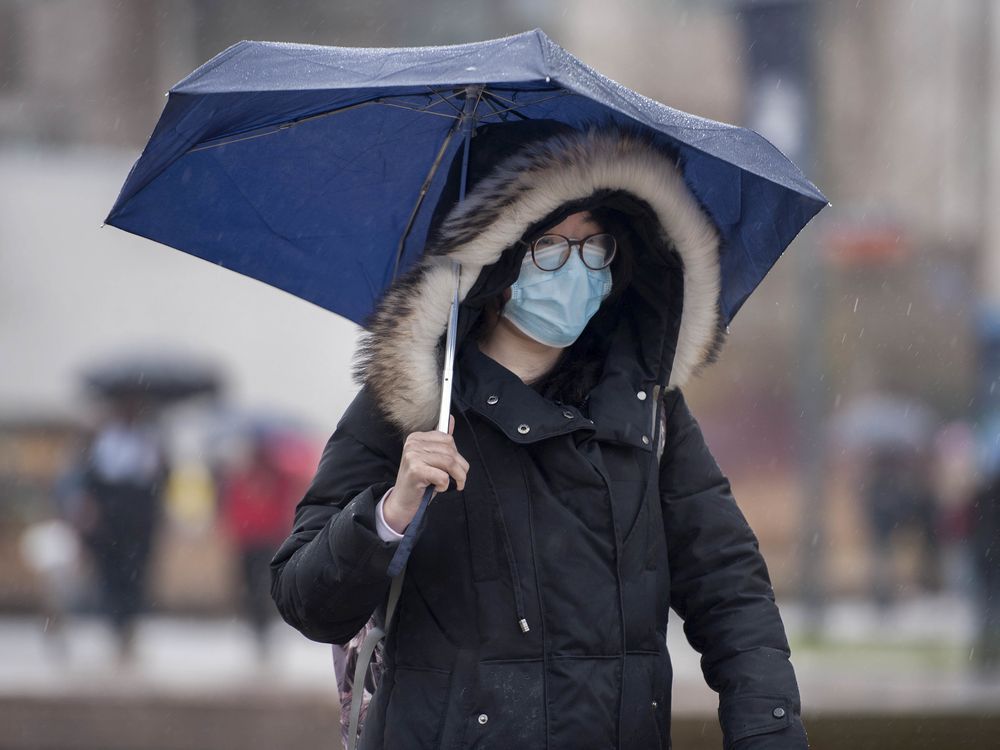Watching, wiping and waiting: How our institutions are protecting us from coronavirus

Credit to Author: Randy Shore| Date: Tue, 03 Mar 2020 01:08:04 +0000
As the COVID-19 coronavirus spreads, you will be increasingly unwelcome in public with a cough or the sniffles as transit users and shoppers are actively avoiding people with respiratory symptoms.
Six people have now died in the Seattle area as the global death toll tops 3,000, and it’s making people edgy.
“I jumped off a bus” after a woman coughing and sniffling behind a surgical mask got on with suitcases, said transit rider Tom Sewid. “I asked if she just arrived from China and she said yes, Wuhan.”
“Bus driver, let me off,” he said. “He stopped and others got off as well and we waited for the next bus.”
People responding to questions on social media admitted to running away from symptomatic people in Costco, avoiding people wearing surgical masks and recounted seeing bus drivers scold passengers to “please cough into your sleeve.”
“TransLink is following the lead of health officials when it comes to response to COVID-19,” the company said. “Provincial Health Services says the risk to our customers and staff remains low and it has not directed us to make any operational changes at this time.”
Buses and trains are disinfected “regularly.”
Provincial health officer Bonnie Henry suggested more frequent cleaning on public transit and increasing the availability of hand sanitizer “so, if there is a lot of virus in the environment, it can be cleaned up before people touch their faces and (infect) themselves.”
B.C. Ferries is taking advice from the Public Health Agency of Canada and B.C. Centre for Disease Control regarding COVID-19 coronavirus.
“We have standard procedures in place to mitigate the spread of illness on our ferries and at our terminals,” said a spokesperson. “As a precaution, crews at our terminals and on board our vessels are taking extra measures to clean all touch points.”
Students at UBC take precautions and wear surgical masks on Monday. Building operations staff are cleaning touch surfaces such as door knobs and faucets on a daily basis.
People who are experiencing cold or flu symptoms should probably avoid transit and self-isolate to do what they can to avoid spreading COVID-19 coronavirus, said Stephen Hoption Cann, a clinical professor in the School of Population and Public Health at UBC.
“When I teach, I notice a lot more students are deciding not to come to class with cold symptoms, because it’s just unwelcome to be coughing,” he said. “Before they might have just toughed it out.”
As COVID-19 is detected in more countries, the virus will become harder to contain, he said. New cases are leaking out of Egypt, which hadn’t been thought to have widespread infection until now.
UBC has installed additional hand-sanitizing stations in high traffic areas across campus, said Matthew Ramsey, UBC’s director of university affairs. “We are reminding everyone in our community again today what the proper procedures are for limiting the spread of illness.”
Building operations staff are cleaning touch surfaces such as door knobs and faucets on a daily basis.
“The cleaning protocols were changed after the SARS outbreak to recognize the need to be more vigilant,” he said.
The car-sharing firm Evo has warned its members not use their cars when they are ill and launched a feature this week allowing members to rate the cleanliness of vehicles to determine which cars need extra cleaning.
Evo cleans each vehicle once a week, but has started using “extra disinfectant,” said Richard Gaspar, Evo’s senior manager of business operations.
The provincial health officer is reviewing the criteria for managing crowd events.
“They are cancelling sporting events in Italy and that’s something you do if you aren’t sure whether (a virus) can be contained,” said Henry.
The H1N1 outbreak of 2009 came close to imperilling the 2010 Winter Olympic and Paralympic Games, she noted.
“We weren’t preparing for a pandemic necessarily, but if the Olympics had been scheduled for November 2009 we would have been in serious danger of cancelling or postponing,” she said. “You need a lot of (Intensive Care Unit) capacity to support the Olympics and that is what Tokyo is looking at right now.”
As COVID-19 outbreaks spread beyond the 50 countries already reporting confirmed cases, containment will become increasingly difficult, said Theresa Tam, chief public health officer for Canada.
“As the number of countries that are affected increase, border measures actually become less effective … and less feasible,” she said. “We are trying to identify individual travellers linked to affected countries, so public health is spending a lot of attention and been very effective taking on individual cases.”
Border entry points provide a moment for education of travellers and those messages are already “expanding and shifting as we speak,” she added.
Travellers are being asked to present themselves to border service agents if they have any symptoms so they can be assessed.
“So far in Canada, this approach has worked very well,” she said.
CLICK HERE to report a typo.
Is there more to this story? We’d like to hear from you about this or any other stories you think we should know about. Email vantips@postmedia.com.